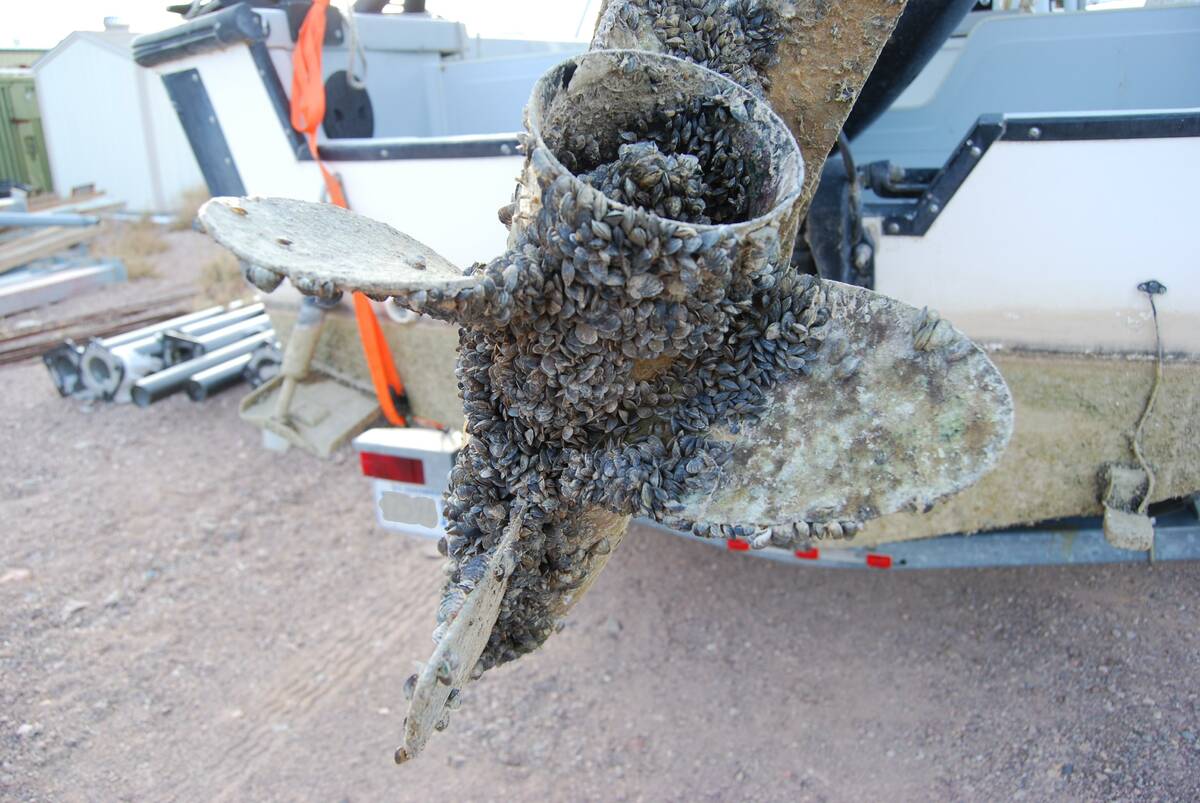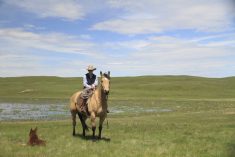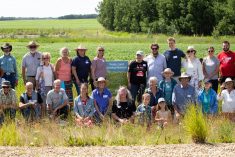Two Alberta women are $10,000 richer thanks to a first-ever grant awarded by the province’s credit unions.
Lynn Dargis of Bonnyville and Laurel Thompson of Vermilion were winners of the Women in Ag grant awarded by the Credit Unions of Alberta and ConnectFirst Credit Union.
Stepped up
Read Also

Invasive species council lending a helping hand to Alberta agricultural producers
Alberta Invasive Species Council unveils the huge economic effect of keeping invasive species unchecked to agricultural production in the province.
Farming has always been in Lynn Dargis’ blood. The current owner and operator of Dargis Seed and Feed and CEO and founder of Farmbucks always knew she wanted to be involved in farming. At 20, she was already on her way when she graduated with an agriculture, management and production diploma from Olds College.
Unfortunately, her career was guided by tragedy, when both of her parents died at the same time. She suddenly found herself responsible for her parents’ mixed farm with feedlot and her three younger sisters as well.
“I wanted to do anything to keep the family farm together and keep my sisters together; there were three at the time that were still in high school.”
With the help of hired hand Richard Cadrin as a mentor (“I call him my second dad”), Dargis got to work.
“That evolved into learning many different things, from custom feeding at the feedlot to cropping my own land. I had to downsize the farming operation to what I thought was manageable. Since then, I’ve been growing again.”
That growth applies to both her farm and an online tool she launched for producers in 2019. Farmbucks is an app/website available for all major computer and phone platforms. It aggregates daily prices for all major Prairie crops and puts them at the user’s fingertips.
Dargis calls it “Expedia for grain prices.”
“Expedia aggregates for hotels: your best rates, where to stay, where to go and who’s got what price for the night. Well, that’s what we’re doing with grain prices,” she said.
Farmbucks was born out of Dargis’ own need to aggregate prices.
“I didn’t have time every day to go online and find out what everyone was bidding on my crops. It’s quite complex and I think a lot of people don’t fully understand what farmers need to do when it comes to selling grain,” she said.
“They’re very volatile markets because they’re traded commodities. They trade like oil or the dollar.”
Most if not all of Dargis’ grant money is earmarked for improving Farmbucks, particularly an application programming interface that ensures the app can better integrate with other farm management platforms. She’s also working to include new features for farmers.
“We’re taking it to a whole other level and seeing what else we can do to help farmers understand their position at all times and what kind of profit margin they want to target and where they need to be.”
Dargis said women still fight an uphill battle to prove their value to industry.
“I have a daughter as well and I think we need to keep encouraging (girls and young women) to go after their ideas.
“I don’t know if our ideas are undervalued, but they’re not taken at the same level of consideration sometimes as maybe a male counterpart because they might think I don’t know what I’m talking about.”
Building self-confidence has helped her tackle that challenge.
“I have the years of experience behind me and it doesn’t bother me anymore. I’ve been farming on my own since 2008, so I’ve got the knowledge and experience behind me so I can stand my ground pretty darn well.”
Agriculture newcomer
The other winner of the $10K grant, Laurel Thompson, did not grow up on a farm or ranch. Now she operates Thompson Farm with her husband, Duncan.
Thompson’s life took a turn when, during her days at the University of Alberta, she changed her undergrad major from biology to crop science.

After graduation, she started her career with an agronomic consulting job, eventually returning to school for a master’s degree in advanced agronomic practices.
However, she had a problem. For all of her academic experience in agriculture, she had yet to drive a tractor or herd a cow. That changed when she married Duncan, who worked on his mother’s mid-size cattle and crop operation near Vermilion.
“I was used to the academic side of agriculture via my BSc and MSc degrees and he showed me the hands-on side of farming,” wrote Thompson in her application to the Women in Ag judges.
“It would never occur to my husband that gender would influence ability to complete a farm task. There were several times, when learning something new, I’d say, ‘well, I can’t do that.’ The reply would be, ‘Why not?’”
Between raising two young children and working as a teacher in Lakeland College’s School of Environmental Sciences, Thompson has little extra time on her hands but that hasn’t stopped her from innovating.
She plans to spend her grant on Charolais bull semen sorted by sex to guarantee a progeny of 95 per cent male calves. The semen, estimated to hit the market in 2024, is destined for targeted breeding in their commercial herd.
She’s doing this to continue a market premium line of tan-coloured calves, the product of crossing white Charolais bulls with Red Simmental and Red Angus cows.
Thompson has already succeeded in using AI and female-sorted semen to retain females in her commercial breeding cow herd, but the prospect of sorted male semen brings the operation into potentially more lucrative territory, given the feedlot premium that male calves garner over female calves at sale time.
“Our goal is to use male-sorted Charolais semen to breed our cattle herd through AI. The resulting male calves bring in a substantial premium at auction,” wrote Thompson in her application to the Women in Ag board.
“It’s impactful for the agriculture audience – male and female – to see myself as a woman farmer showcasing this relatively new technology in practice in a leading role.”
Although Thompson sees challenges for women in agriculture, she said sexism is fading with each passing year.
“I think that compared to even when I came into the industry 10 years ago, there’s certainly a normalization of women working in agriculture,” she said.
“Women do face lots of issues but they’re not necessarily unique to agriculture. They’re almost societal issues. Women usually have most of the household and child-rearing responsibilities, which really makes it difficult to work an unbridled schedule.”
Sponsor support
Credit unions are involved in growing every aspect of agriculture, says Matea Maric, spokesperson for Women in Ag, and support of the awards reflects that.
“[We] know that women in particular can face barriers in the industry, such as insufficient access to capital and financing. So we wanted to support the growth of this vital sector but also support those who may be struggling to help their ag businesses get off the ground or to grow and thrive.”
The 100 applicants responded to five long-answer questions focused on issues facing the ag sector.
“It was a very tough competition. The two finalists were selected based on their passion, vision for the future and their desire to give back and break down barriers for women in ag,” wrote Maric.
This was the inaugural year for Women in Ag, but it won’t be the last, wrote Maric.
“We received over 100 applications this year, which is huge for the first year, and with promotion largely just through word of mouth and social media.
“Next year we are hoping to include registration to the Advancing Women in Agriculture Conference to the winners as well. We’ll be aiming for a spring grant rollout in 2024 so keep an eye out.”
















